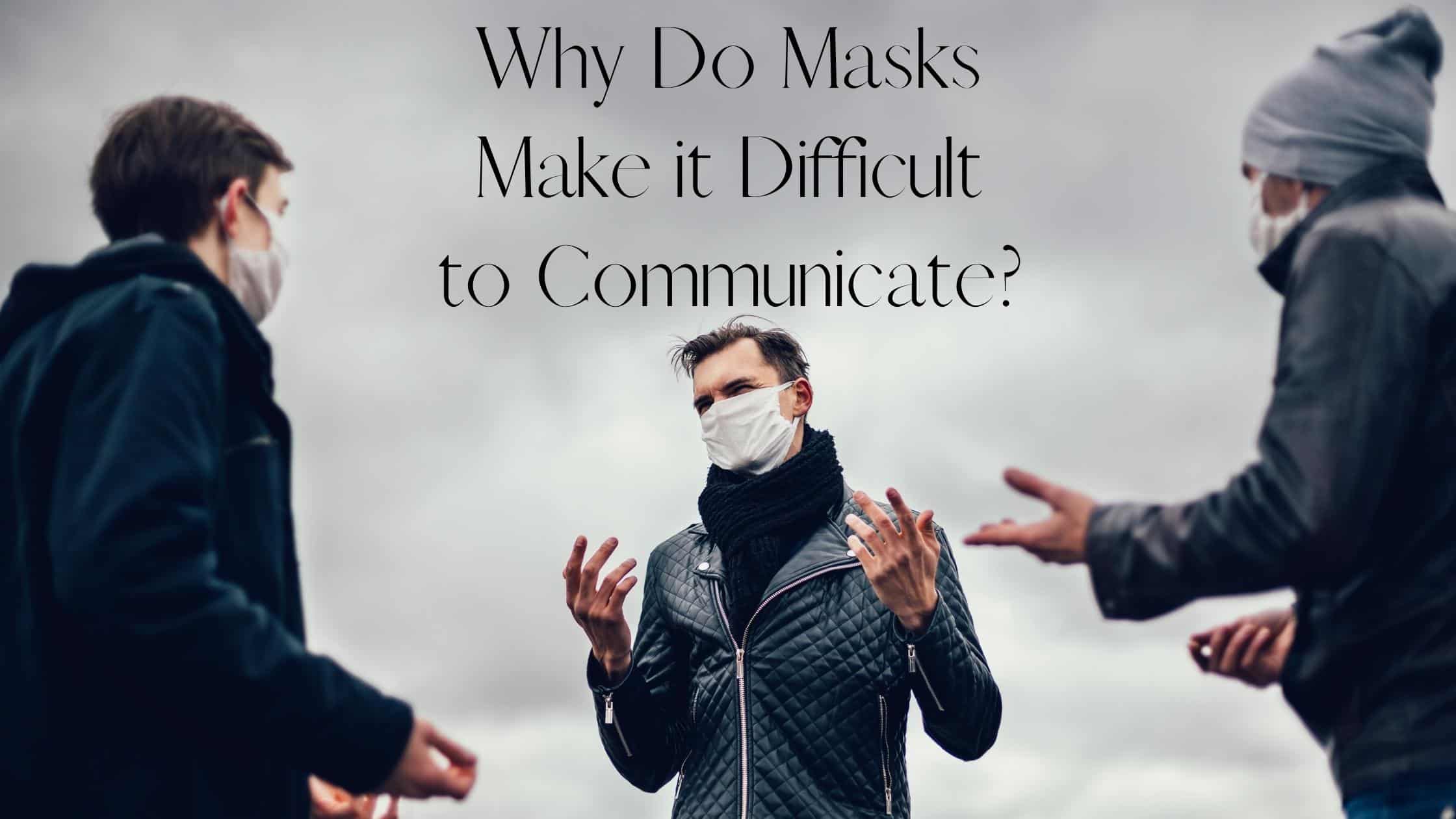
- How to Properly Clean Your Hearing Aids - April 15, 2024
- How to Handle Ear Infections With Hearing Aids - April 5, 2024
- Strategies for Working Professionals with Hearing Loss - March 27, 2024
Masks have become an everyday part of our lives. Our public health officials recommend that we wear masks when meeting people, when visiting the doctor, and even when shopping. Masks are an effective way to slow the spread of the COVID-19 virus. However, we also know that masks make it difficult to communicate.
Masks Affect Speech Understanding
Wearing a mask muffles the sound of your voice. This makes it harder to hear what’s being said, especially for someone with hearing loss. Masks can also limit our mouth mobility. It’s harder to form words, and some shapes are hard to make while wearing a tight mask. This can affect speech understanding and make it challenging to follow conversations.
Hearing with Our Eyes
Another reason masks make it difficult to communicate is that we rely on our eyes to help us hear. Our vision lets us read people’s facial expressions, and notice a smile or a raised eyebrow. We also look at people’s mouths when they speak. Adults with hearing loss are even more likely to rely on these visual cues. If you have hearing loss you may read lips, so seeing someone’s lips and mouth is important for you to hear and understand what’s being said.
Staying Socially Distant
When it comes to communicating, it’s not just the masks that make it harder to hear what’s being said. As well as wearing masks, public health officials are strongly recommending that we practice social distancing and stay at least 6 feet away from each other. This distance can also make it more difficult to communicate. If you’re speaking to someone a few feet away, their voice doesn’t reach you as easily. At this distance, it’s harder to distinguish between their voice and other background sounds.
Making it Easier to Communicate While Wearing a Mask
Thankfully, there are a few things you can do to make it easier to communicate while you and everyone around you are wearing masks.
One way to make communication easier is by wearing masks with clear panels over the lips and mouth, or even wearing a transparent mask. When both you and the person you’re talking to can see each other’s faces and mouths, you’ll be able to communicate more easily.
Another way to communicate with masks is to let your brain take over. For example, when talking on the phone you’re able to hear what’s being said even if you can’t see the speakers’ face. That’s because the brain is focusing more energy on listening. If you let your brain take over and stop looking so intently at the masked face of your friend, you may have an easier time communicating.
Besides masks and distancing, background noise is yet another factor that makes it harder to communicate. Wearing masks in loud public places definitely makes it harder to hear what’s being said. All this background noise makes it a lot harder to hear. If you’re having difficulty communicating, and it’s possible to get away from the noise, try that. Standing in a quiet spot can make it much easier to communicate.
More Tips for Communicating with Masks
There are even more tips for communicating with masks. Try these tips next time you’re wearing your mask and see how much easier it is to communicate.
- Make sure the person you’re talking to knows you’re speaking to them. Wave a hand, or call them by their name before you start speaking.
- Face the person you’re talking to so the sound of your voice will reach them.
- Talk a bit louder than usual to help your voice carry across the space.
- Confirm that they’ve understood what you said.
- Use hand gestures, head nodding, and body language to get your point across.
Treating Hearing Loss
If you’re having a hard time communicating while wearing a mask, it may be time to treat your hearing loss. Book a hearing test this week and find out more about your hearing health. Untreated hearing loss makes it very difficult to communicate and wearing a mask will make it even harder. Treating your hearing loss with hearing aids is one of the best ways you can improve your hearing, both with and without a mask.
